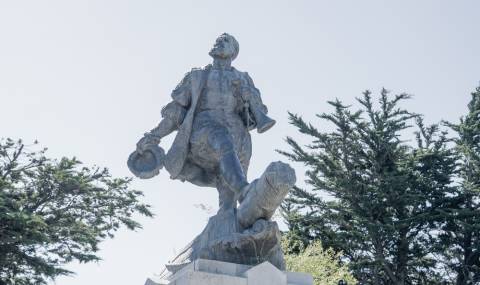On September 20, 1519, the Portuguese Fernando Magellan set off from Spain on a circumnavigation , completed in 1522
He was the first navigator to set sail from Europe to Asia in a westerly direction, the first European to sail the Pacific Ocean and the first to lead a circumnavigation expedition.
An international crew is embarking on the first ever round-the-world voyage: in addition to Portuguese and Spanish, representatives of 10 other nationalities are included in its composition. In addition to the 265 people on the ships, there are also 26 foreign crew members, including the young Italian Antonio Pigafetta, the future historian of the expedition.
Although he himself died before returning to Europe, part of the crew organized and led by him during the first half of the journey returned to Spain, having managed to circumnavigate the world. On September 6, 1522, Juan Sebastian de Elcano with the rest of Magellan's crew, together with the “Victoria”, the last ship of the flotilla, arrived in Spain, completing the world's first circumnavigation in 1081 days.
Magellan's expedition was the first to circumnavigate the world and the first to cross the strait in South America, known today as the Strait of Magellan. The name of the Pacific Ocean also originates from Magellan, who gave it the name Peaceful (Quiet) Sea. In the following decades, the route taken by Magellan's expedition was followed by other navigators, such as the Englishman Francis Drake in 1577-1580. In 1565, Andres de Urandeta discovered the route to cross the Pacific Ocean from west to east, in the direction of Manila -Acapulco.
Magellan's voyage gives an idea of the total size of the Earth, as the distance traveled was measured as 14,460 Spanish leagues (60,440 km). The need for a line to change the date is also established - going around the Earth to the west, one day is lost: on their return, the expedition participants found a difference of one day between their calendars and those of people who did not sail, despite the diligently kept ship's logs. When this fact was established, it caused great excitement and a special delegation was sent to the Pope to explain the event to him.
